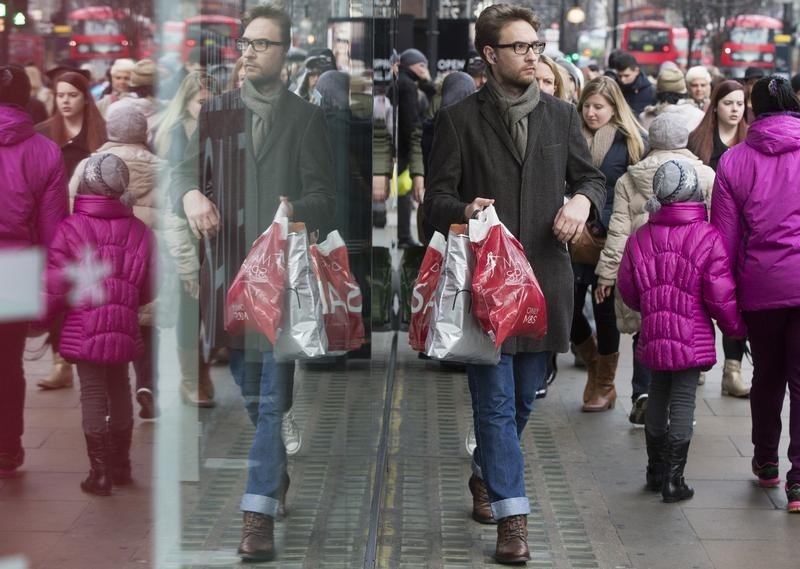BRUSSELS (Reuters) - Retail sales in the euro zone were the highest in almost eight years in December as Christmas shoppers splashed out on presents, food and fuel, likely encouraged by falling prices in the bloc.
Led by a strong showing in Spain, retail trade volumes rose 2.8 percent in December compared to the same month in 2013, the best year-on-year growth since March 2007, the EU's statistics office Eurostat said on Wednesday.
That was also better than the 2.0 percent forecast of economists polled by Reuters.
On a monthly basis, retail sales rose 0.3 percent, a slower pace than in November but still slightly more than expected. November sales were also revised upwards.
The improving picture in Eurostat's reading follows a European Commission survey last week showing an improvement in consumer confidence in January to a six-month high. Many consumers appeared more confident about making major purchases and see prices falling over the next 12 months.
Retail sales suggest weaker oil prices may be increasing Europeans' spending power, and if continued, could defy expectations that deflation in the euro zone will force consumers and companies to delay purchases as they anticipate lower prices in the future.
Deflation in the euro zone, a symptom of the aftermath of the bloc's 2009-2012 debt crisis, prompted the European Central Bank to announce a money-printing plan to revive inflation.
Households in the euro zone have been struggling since the debt crisis that has constrained disposable incomes, a weakness that has fed back into the weak economy. The Commission expects the euro zone economy to finally pick up this year and reach modest growth in 2016.
On a monthly basis, shoppers in Spain were among the most free-spending as the economy improved there, followed by France and Germany. Sales of food, drinks, tobacco, clothing, computers and fuel all rose.
On an annual basis, Spain again led among the bloc's big economies, while the Irish also opened their wallets. Germany posted solid growth, but French consumers were more cautious, reflecting weaker economic morale in France.
